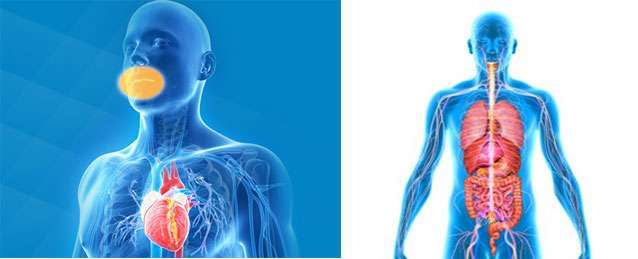 Periodontal disease, a chronic inflammatory disease that affects the soft and hard structures that support the teeth, occurs for a variety of reasons. Read on to learn about the various risk factors that increase susceptibility to periodontal disease, and what steps you can take to decrease your risk of gum disease.
Periodontal disease, a chronic inflammatory disease that affects the soft and hard structures that support the teeth, occurs for a variety of reasons. Read on to learn about the various risk factors that increase susceptibility to periodontal disease, and what steps you can take to decrease your risk of gum disease.
Not Taking Care of Your Teeth and Gums
It should go without saying that people who do not take their oral health seriously increase their likelihood of developing gum disease. Everyone should brush their teeth at least twice a day, and preferably after eating and drinking. Daily flossing is also a must. For people who do not take these measures, oral bacteria quickly accumulate. Bacterial plaque that is not regularly removed eventually harms the gum tissue, prompting the onset of periodontal disease.
Tobacco Use
People who smoke, chew, or dip are significantly more likely to develop periodontal disease, the American Dental Hygienists Association explains. Tobacco use also diminishes the success of periodontal treatment. This is because smoking, vaping, chewing, etc., weakens the body’s immune system and causes inflammation. The best step a tobacco-user with periodontal disease can take is to cut out tobacco.
Medications Causing Dry Mouth
Certain medications cause dry mouth as a side-effect. Although this may seem like a minor inconvenience, dry mouth can cause or worsen gum disease. This is because dry mouth prevents the mouth from creating saliva. Without saliva, oral bacteria that would otherwise be flushed out of the mouth remain, proliferating at dangerous levels. Heightened bacteria levels cause the gums to recede and make gum disease much more likely.
Make sure to discuss medication side effects with your health care professional. They should be able to suggest alternative medications or tips on how to deal with dry mouth or prevent it entirely.
Pregnancy
Pregnancy also increases susceptibility to periodontal disease. Pregnancy causes hormonal changes, which increases the mother’s risk of developing gingivitis (inflamed gum tissue) and periodontal disease. Mothers with periodontal disease may be more at risk of adverse pregnancy outcomes such as giving birth to a low-birth-weight baby.
Consequently, maintaining periodontal health is a crucial component of experiencing a healthy pregnancy. Pregnant women should be vigilant about maintaining their oral health and attending regular dental cleanings. Moreover, expectant mothers should keep apprised of their periodontal health. It would be wise to schedule a comprehensive periodontal evaluation during pregnancy to gain knowledge about one’s susceptibility to periodontal disease, develop a periodontal treatment plan if necessary, and diminish the chance of pregnancy complications.
Family history
Genetics can be a wonderful gift. Genetics can also be a curse, especially if your family has a history of periodontal disease. Heredity does play a role in the development of gum disease. If a parent or other family member suffers from periodontal disease, there is a chance that you may too. This does not mean that you will inevitably be diagnosed with periodontal disease. This simply means that you must be more fastidious than others in staying on top of your oral health through at-home maintenance and regular dental visits.
Have questions? Give us a call at (919) 518-8222. We’d love to speak with you!
